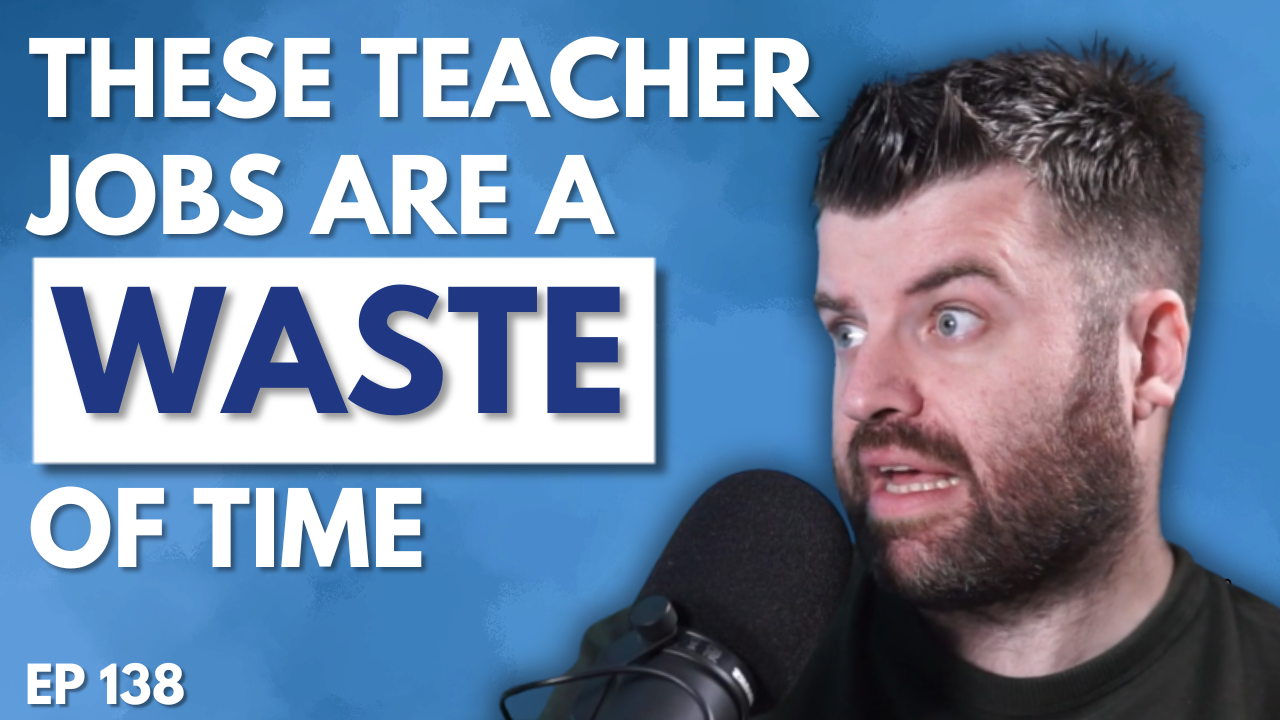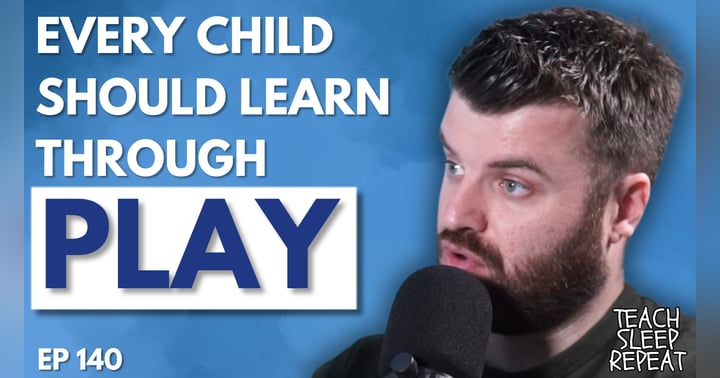The Biggest Time-Wasting Teacher Jobs and Why They Should Be Scrapped

Every teacher knows the feeling of spending hours on something that makes no difference to the children in front of them. In Episode 138 of Teach Sleep Repeat we dived into the biggest time-wasting jobs in schools and asked why they still exist.
This was not about moaning for the sake of it. It was about exposing the tasks that drain teacher time and energy with absolutely zero benefit to learning. If schools are serious about reducing workload and tackling the retention crisis, these jobs need to go.
Written Marking
Marking is one of the most time-consuming parts of teaching, yet research has consistently shown that traditional written marking has little impact on pupil progress. Verbal feedback, whole-class approaches and live marking strategies are far more effective and much less time heavy. Yet many schools still demand triple marking or written responses for every piece of work.
Aesthetic Lesson Tweaks
Changing fonts, making sure every PowerPoint slide matches the school colour scheme, or putting the word RETRIEVAL at the top of a slide does not improve learning. These tweaks take up precious time and, as studies into dyslexia and reading fluency have shown, fancy fonts can actually make text harder for pupils to read. The focus should be on clarity, not aesthetics.
Replanning From Scratch
Teachers are often told to replan lessons even when they have already worked. Constantly reinventing the wheel wastes time that could be spent refining or adapting existing resources. Collaboration and shared planning banks are far more effective and allow teachers to spend time on what matters most: how the lesson is delivered.
Book Looks
Book scrutinies are meant to check standards but in reality they often become box-ticking exercises. Children do not learn more because a senior leader flicks through books with a checklist. What they do learn from is teachers who have the time and energy to plan engaging lessons and give real feedback.
Over-Assessing
Recording data for every lesson, every objective and every child is exhausting and unnecessary. Assessment is vital when it informs teaching, but endless spreadsheets rarely change practice in the classroom. Schools need to trust teachers to know their pupils and use assessment proportionately.
Mocksteds
Practice inspections are often sold as preparation but they add little value. The stress and workload are real, the impact on teaching and learning is not. If leaders trust their systems and teachers, they should not need to simulate an inspection to prove it.
Why This Matters
Every single one of these tasks takes time away from what actually improves children’s learning. None of them have strong evidence to support their impact. By cutting them, schools could free up countless hours, reduce stress and make teaching more sustainable without sacrificing standards.
This conversation struck a chord with listeners because it is the reality of teaching in the UK today. Workload is the number one reason teachers leave the profession. If we want to solve the retention crisis, we have to be brave enough to bin the things that do not work.






